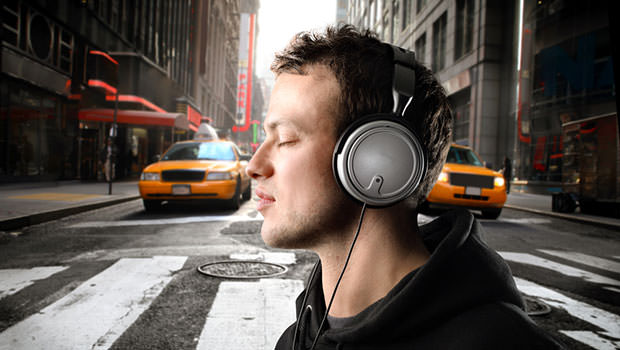In this day and age, many people are choosing digital hearing aids over analog hearing aids. While digital hearing aids are wonderful for hearing speech, they have a weak spot when it comes to music. This weak spot is the analog-to-digital (A/D) converter found in all digital hearing aids. Live music can easily be 100-120dB, but digital hearing aids are not usually designed to amplify sounds over 90dB. When a 100dB sound enters a digital hearing aid, the A/D converter becomes saturated which causes the sound to become distorted.
Hearing Aids and Music
Unfortunately, recorded music is often compressed during production. When listened to through a hearing aid, the music is compressed again which causes more distortion.
As reported in the Journal of the American Academy of Audiology, a study by Leek, et al indicated that audiologists should be aware that 25-30% of hearing aid users may have difficulty listening to music with digital hearing aids. A study performed by the University of Colorado Boulder suggests that less sophisticated hearing aids may be more compatible with listening to music.
Analog Hearing Aids
The solution is to use an analog hearing aid. Analog hearing aids have long been enjoyed by music lovers due to their clean reproduction of sound. In fact, some audiologists suggest putting scotch tape over the microphone of digital hearing aids in order to make them behave more like analog aids! Analog hearing aids allow for true sound reproduction, without conversion, so that you can enjoy the wide range of sounds of music.
However, analog hearing aids have been phased out of production by many hearing aid manufacturers making them difficult to find. Thankfully, the MDHearingAid PRO is a premium analog hearing aid. It has a clear, crisp sound enjoyed by music lovers and is affordable. The PRO also has an independent volume control and two different programs to control the frequency response so that you are hearing what you want to hear.
We still think digital hearing aids offer a world of help to people with hearing loss. But if you are a digital hearing aid user who enjoys your digital aids for speech and find them lacking for music, a back-up set of analog aids for music may be the solution for you.
Here is one customer’s rave review:
“I recently bought two hearing aids from you. I am extremely happy with them and I feel you should know why.
I am a musician. I play the piano and frequently go to symphony concerts. Due to old age I have fairly severe hearing loss in both ears. For speech recognition I wear a couple of conventional digital hearing aids. Those devices are extremely helpful for day-to-day use but unfortunately distort musical sound rather severely. This is probably due to the fact that digital hearing aids measure the presence of high frequencies that are beyond good hearing and translate those into sounds that are an octave lower. This distortion makes pianos sound metallic. Instruments with high amounts of overtones, such as violins, sound shrill. Toning down the treble of digital hearing aids alleviates this somewhat but not enough to make a piano sound natural. The solution, I am very happy to say, is to wear analog hearing aids when listening to music.
Your hearing aids have made listening to music a pleasure again.”
John
Never miss a beat. Choose the MDHearingAid PRO as your back-up hearing aid so you can listen to music all day long.
ORDER NOW
